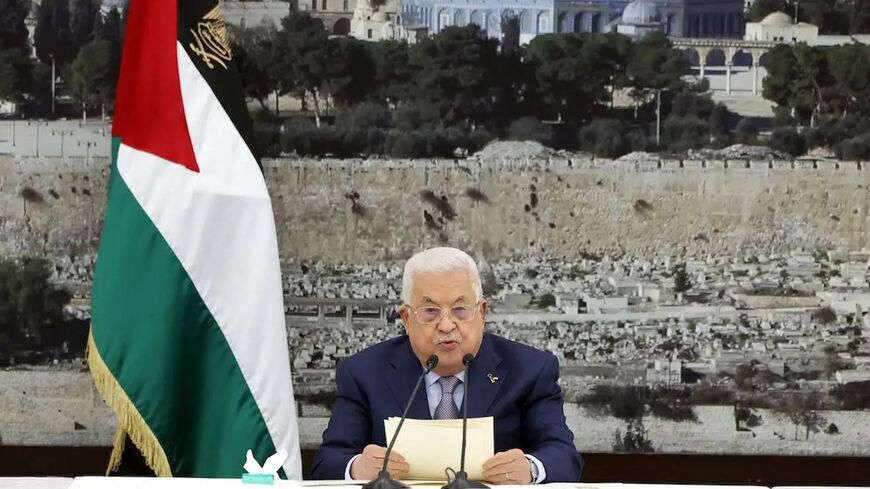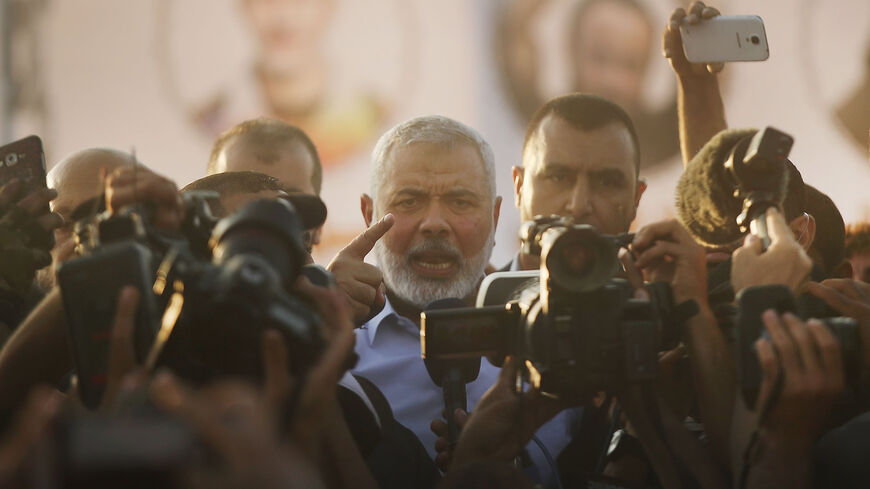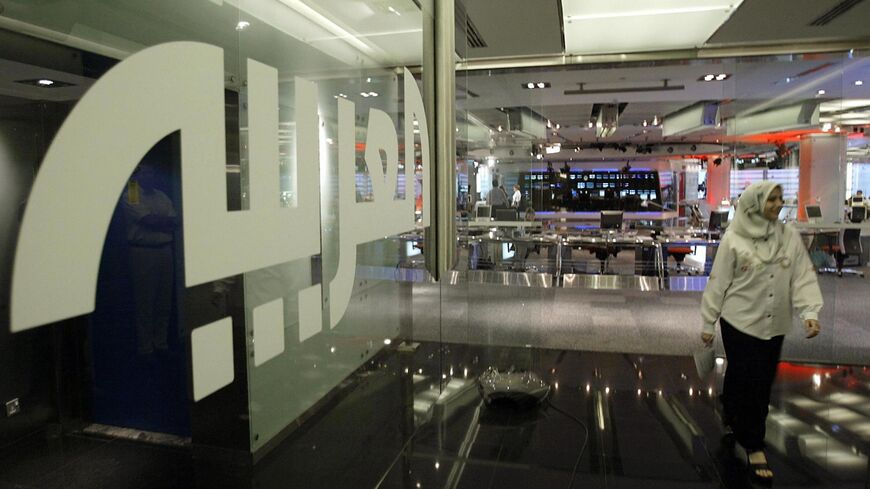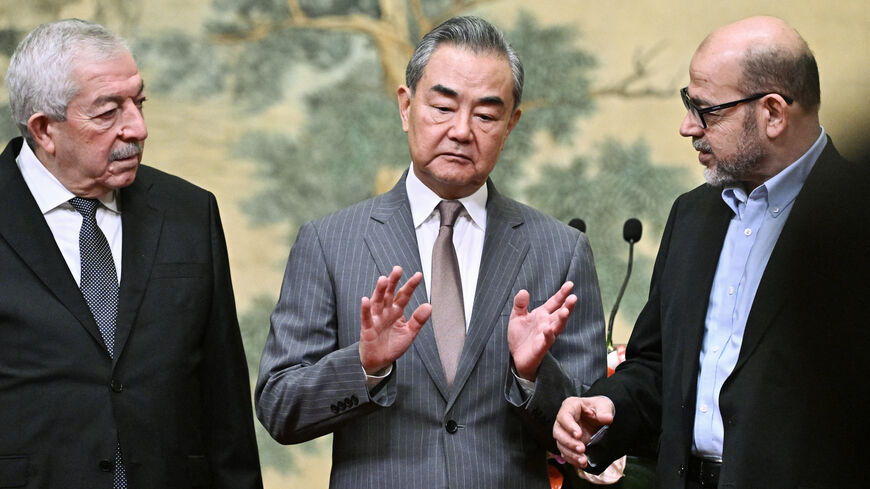Palestinian presidency criticizes Iran's Khamenei publicly: What we know
Iran has long backed Hamas and threw its support behind the group following its assault on southern Israel last October.
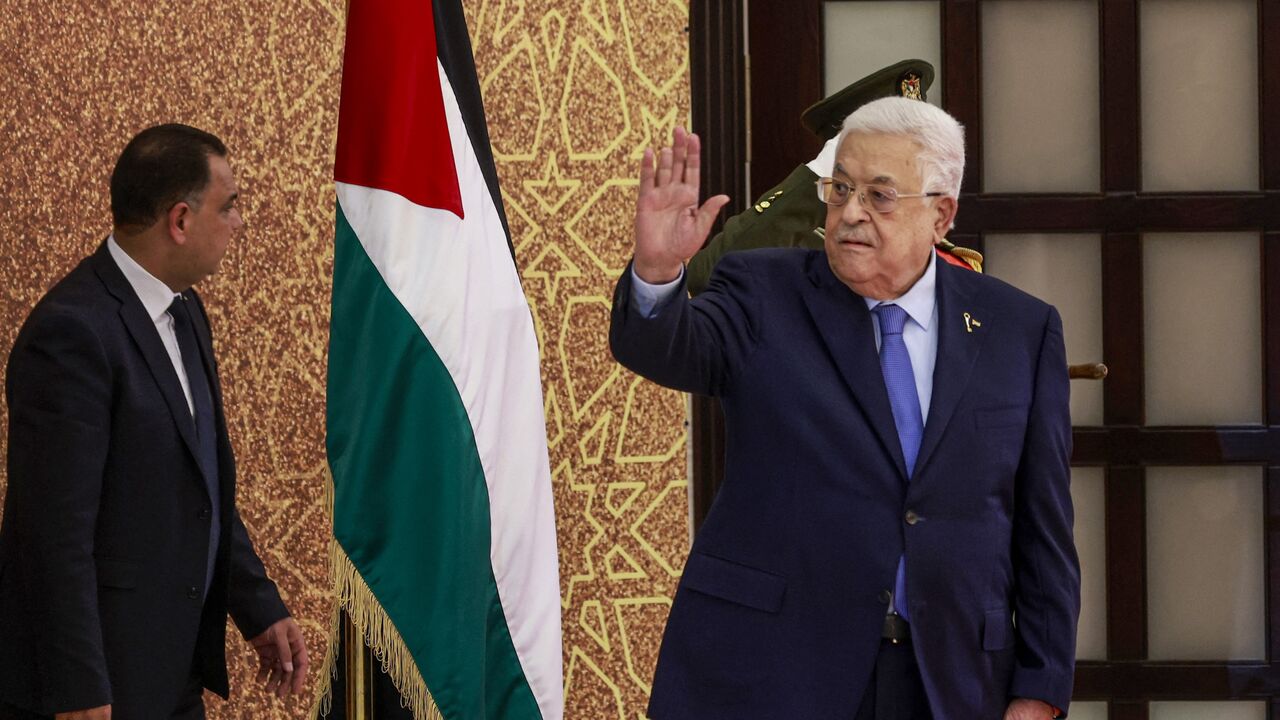
The Palestinian presidency on Monday hit back at remarks made by Iran’s supreme leader, Ayatollah Ali Khamenei, praising the Oct. 7 attack on southern Israel and the ensuing war in Gaza, which the Palestinian side saw as exploitation of their own struggle.
Speaking at a ceremony marking the 35th anniversary of Ayatollah Ruhollah Khomeini’s death in Tehran on Monday, Khamenei praised Hamas’ unprecedented assault “as a huge blow to Israel,” saying it disrupted plans by Israel and the United States to change the regional dynamics.
The Iranian leader further said the attack has brought the world’s attention to the Palestinian issue.
“The Zionist regime [Israel] is gradually melting in front of the eyes of the people of the world,” he added.
The Palestinian presidency immediately responded to Khamenei’s comments, saying that the Palestinian people are the first to be affected by the ongoing Israeli war in the Gaza Strip.
In a statement carried by the official WAFA news agency, the Ramallah-based presidency said such comments are “clearly” aimed at sacrificing Palestinian blood and destroying Palestinian land.
These comments “will not lead to the establishment of an independent Palestinian state with east Jerusalem as its capital.”
“The Palestinian people have been fighting and struggling for a hundred years, and they do not need wars that do not serve their ambitions for freedom and independence and for the preservation of Jerusalem and its Islamic and Christian sanctities,” the presidency stressed.
“What we want is an end to the occupation,” the statement noted, “not policies that do not serve the national goals.”
In similar comments, an adviser to Palestinian Authority (PA) President Mahmoud Abbas accused Iran of seeking a foothold in the Palestinian territories, saying, “Tehran is sacrificing the blood of the Palestinian people for its own interests.”
In comments to the Saudi-owned Al Arabiya TV on Monday, Mahmoud al-Habbash, Abbas’ adviser on religious affairs and Islamic relations, responded to Khamenei’s statements, saying, “Iran has no right to assess what happened on Oct. 7.”
He further claimed that Iran has backed all of Hamas’ actions since the start of the war in Gaza. Habbash also took aim at Hamas, accusing the group of being responsible “for the dispersal of the Palestinian people.”
Iran, which backs Hamas, has been accused of greenlighting Hamas’ Oct. 7 cross-border assault on southern Israel, which prompted the Israeli army to unleash a major air, sea and ground campaign in Gaza. During their attack, Hamas militants killed nearly 1,200 people and took over 240 others hostage.
The Islamic Republic has denied any role in coordinating the attack.
Meanwhile, more than 36,000 Palestinians have been killed in Gaza since then, according to the Health Ministry in the enclave.
Even before the war erupted, Iran had been a major backer of Hamas, providing it with funds, weapons and training for its fighters. According to the US State Department, Iran gives $100 million annually to Palestinian groups, including Hamas and the Islamic Jihad.
In contrast, the PA has repeatedly criticized Iran over its involvement in Palestinian affairs.
Most recently in April, the Fatah movement, which Abbas also chairs and is Hamas’ main rival, accused Iran of spreading chaos in the West Bank.
“We will not allow our sacred cause and the blood of our people to be exploited for suspicious plots that have nothing to do with them,” a Fatah statement said at the time.
The PA lost control over the Gaza Strip in 2007 following deadly clashes between Hamas and Fatah members in the enclave. The infighting ended with Hamas expelling the PA and taking control of Gaza.
Since then, all mediation attempts by regional actors, namely Egypt, have failed to resolve the Palestinian division.

